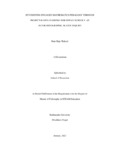
Please use this identifier to cite or link to this item:
https://hdl.handle.net/20.500.14301/131| Title: | ENVISIONING ENGAGED MATHEMATICS PEDAGOGY THROUGH PROJECT-BASED LEARNING FOR NEPALI SCHOOLS: AN AUTOETHNOGRAPHIC ACTION INQUIRY |
| Authors: | Thakuri, Ram Raja |
| Citation: | Thakuri, R.R.(2023).Envisioning engaged mathematics pedagogy through project-based learning for Nepali schools: An autoethnographic action Inquiry |
| Issue Date: | Jan-2023 |
| Publisher: | Kathmandu University School of Education |
| School: | SOED |
| Department: | DOSE |
| Level: | M.Phil. |
| Program: | MPhil in STEAM Educaiton |
| Abstract: | This dissertation portrays the learning environment of different classes and levels based on my lived experience of the learning world, my professional practice and my visions in applying project-based pedagogy to promoting engaged mathematics learning through the STEAM project. Moreover, it depicts the pedagogical shift from one-way teacher-centered teaching and learning to student centered, inspired by the idea generated from my MPhil journey in STEAM education. I have generated my research problem from conceptual, contextual and empirical perspectives experiencing the ongoing process of mathematics teaching and learning from the early classes. In this regard of completing the inquiry, I designed a principal research question with four subsidiary research questions. Also, I employed a multi-paradigmatic research design space including three research paradigms: interpretivism, criticalism and postmodernism for the successful inquiry. Likewise, I used autoethnographic action inquiry as the methodology. Autoethnography is employed to express my lived experience as a mathematics learner, teacher and teacher educator. I performed my narratives employing poems, dialogue, monologue and stories. Besides, inside autoethnography, I used action inquiry to transform my professional practices by means of STEAM project implementation in my daily classroom activities. For this inquiry process, I was guided mainly by two grand theories, constructivism learning theory and transformative learning theory. I unpacked my narratives, plan, implementation of the plan and its reflection with the development of four sections. In the first section, I explored my lived experiences from early school education to my master's degree in learning mathematics, including the experience of MPhil level in STEAM education. Moreover, I critically reflected on my learning experience, professional practices and even the turning point of professional practices toward transformation to address the first research question as well. In the second section, I presented my in-depth plan for completing the inquiry to respond second research question. In addition, I envisaged my STEAM project promoting engaged learning in order to encounter disengaged and decontextualized learning of mathematics. Also, I included the overall framework of STEAM project and its design by establishing the connection between STEAM disciplines in this section. The third section presents the implementation of STEAM project in classroom practices. Moreover, I unpacked the overall activities of the project application in learning mathematics with the challenges I faced during the implementation. The third section was devoted to answering the third research question indirectly. Similarly, I developed the fourth section to reflect the project implementation outcomes from my and the participants’ sides. Based on the lived experiences of project-based mathematics learning, I shared the ideas created by participants and myself in this section to address the fourth research question. Finally, from this autoethnographic action inquiry, I found myself as the change agent from learning as well as professional perspectives for promoting engaged learning to the students as I faced the existing mathematics learning process is bringing many barriers in learning on the one hand. On the other hand, I found that project-based learning is the best approach to developing the vision of an engaged and contextualized mathematics learning process. Thus, this inquiry has become a valuable achievement for me in my professional life. Besides, this might inspire others for their transformative professional journey from the perspective of promoting engaged learning and designing vision in teaching and learning mathematics. |
| URI: | http://101.251.6.110:8080/handle/20.500.14301/131 |
| Appears in Collections: | Dissertation |
Files in This Item:
| File | Description | Size | Format | |
|---|---|---|---|---|
| MPhil_STEAM_Final WCC (Raja Ram Thakur) Thesis for Print.pdf | 3.44 MB | Adobe PDF |  View/Open |
Items in DSpace are protected by copyright, with all rights reserved, unless otherwise indicated.